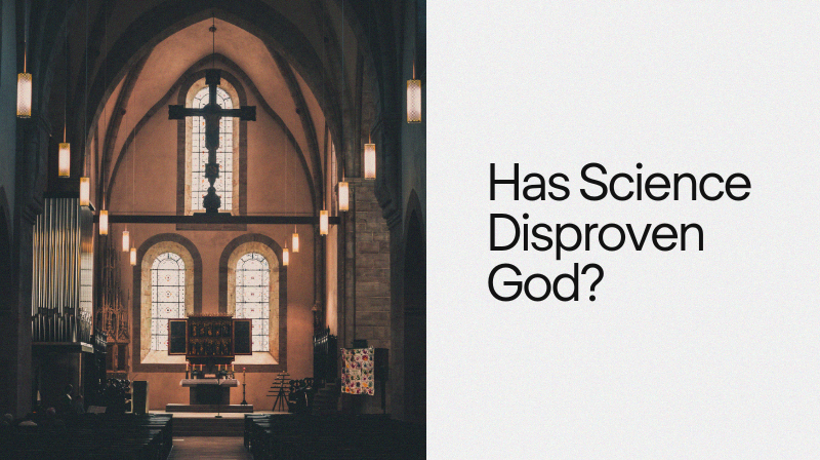Part One - Has science disproven God? A Brief History of Modern Skepticism
Several years ago, Marty Sampson, formerly of Hillsong Church, made an Instagram post announcing that he was losing his faith. One of the reasons he gave was that, “Science keeps piercing the truth of every religion.” Though an Instragram post is far from a scientific article, this sentence does represent a common modern objection to belief in God. Some would say that science has just put God out of a job, so to speak, meaning His existence is unnecessary. Others would even go so far as to say that science and faith are in direct conflict, and that science has disproven God. Then again, there are also people who have been drawn closer to God through scientific exploration. So, how are we to understand the relationship between science and faith?
Science versus Faith?
The conflict between Galileo Galilei and the Catholic Church is often given as a clear case of conflict between science and faith. As the story goes, the scientist (Galileo) was condemned because his scientific theory of the earth revolving around the sun, instead of the other way around, supposedly conflicted with Christian belief (the Catholic Church). There are two significant problems with viewing this conflict as science versus faith. First, in terms of belief, the parties on both sides were Christians, so it was not science against faith, but rather, people of faith discussing competing scientific theories. Second, in terms of science, the popular view of the Catholic Church at the time was largely based on ancient Greek philosophy and astronomy, so it was not as if Galileo’s view opposed “the biblical view”. His view opposed a combination of ideas, which were more influenced by the Greek ideas than the biblical ones and have since been rightly discarded.
The conflict between science and faith may have been exaggerated, but there have also been those who consider God’s existence to be unnecessary at best and counter-productive at worst. One of these was Charles Darwin, who proposed a theory to explain the diversity of all life on earth that made no reference to the design of an intelligent Creator, but only to apparent design, explained by natural selection. This is known as Darwinian evolution. Over the next one hundred years, Darwin’s successors incorporated additional information from studies in genetics into the theory, combining natural selection with genetic mutation. The popularity of Darwin’s ideas spread to other scientific disciplines and gained significant support. This was seen as a major advance in science that took the place traditionally held by God, in being the Creator and Designer of all life on earth. Evolutionary theory provided more than just a naturalistic account of biology, for it set a foundation for rejecting any explanation that wasn’t naturalistic. If Darwin could explain away apparent design in one area, then given enough time, science would eventually be able to explain any other area. Any reference to God in scientific explanation would be rejected as a so-called “God-of-the-gaps” explanation, which is the idea that those who believe in God insert Him into gaps in their knowledge, to cover their ignorance. If they don’t know, they just say that God did it. The question remains, however, whether this modern skepticism is reasonable or not. To answer that, we need a brief history of modern science, which will be the subject of Part 2.





